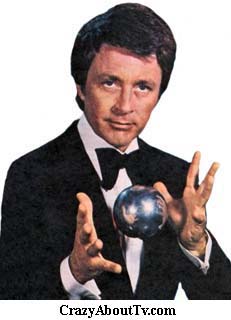RSS is not Magic (yes, there is more to do)
 Everyday I am hearing more about RSS. RSS is the cure that we have been waiting for. RSS will transform the web into a world of happy feeds that we can mix and rearrange at will. In fact, there are a number of VC-backed companies that have sold investors and the media on that story. I hate to break it to everyone, but that ain't gonna happen. RSS is not the answer. Don't believe me? Then why all the fuss over MSFT SSE?
Everyday I am hearing more about RSS. RSS is the cure that we have been waiting for. RSS will transform the web into a world of happy feeds that we can mix and rearrange at will. In fact, there are a number of VC-backed companies that have sold investors and the media on that story. I hate to break it to everyone, but that ain't gonna happen. RSS is not the answer. Don't believe me? Then why all the fuss over MSFT SSE?Don't get me wrong, RSS is definitely a step in the right direction. Previously we were stuck trying to distill data from unstructured web pages using machine learning techniques. Yuck. With RSS, we now have a simple structured format to access published data. Many popular web-based services such as Flicker, Blogger, and Delicious publish data via RSS. Since everyone is using a simple and structured format, distributed data is much easier to leverage for programmers. By making it easier for programmers to manipulate data, we have now opened the door for a whole slew of services that add value to the user experience. For instance, RSS readers like let us avoid traveling to multiple news sites. So what is missing?
Where do I start? If you are like me, you have a hundred feeds that you follow over time. Like me, you also may feel a bit overwhelmed. How can we distill the relevant information in context at any given point in time? We can't. We are back to the same search game as we were before. Granted the number of things to search and organize may be less, but that does not change the complexity of the machine learning problem. How do we integrate feeds? Does the title of the feed tell us that information? Does the channel, or item name, serve as a primary key? How do we know how data and terms from one feed relate to another? Better yet, RSS feeds are essentially a one-way pipe. What if data changes relating to a story? How do we get around that?
The answer to all of these questions (and more) is simple--not RSS. Like HTML, RSS is a good stepping stone technology. It is helping people get used to the idea that they can control information on the web. It is helping us identify novel use cases for information sharing and reuse. It is solving some real problems right now. But RSS is not magic. Just as HTML alone has not proven to be the optimal solution for creating web-based applications, at the end of the day we will need a better framework than RSS for integrating data in the emerging Web 2.0 world. That is my two cents. Back to work for this web-slinger. Be good.
technorati tags: web2.0, rss, sse, venture capital



0 Comments:
Post a Comment
<< Home